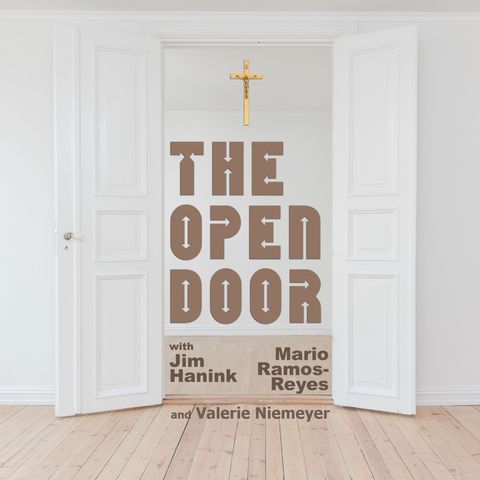Episode 282: John A. Di Camillo, PhD, BeL., an Ethicist and Personal Consultations Director at The NCBC (April 17, 2024)
Apr 18, 2024 ·
1h 1m 10s

Download and listen anywhere
Download your favorite episodes and enjoy them, wherever you are! Sign up or log in now to access offline listening.
Description
On this episode of The Open Door (April 17th), panelists Jim Hanink, Mario Ramos-Reyes, and Valerie Niemeyer discuss medical ethics. Our focus will be the debate about the criteria for...
show more
On this episode of The Open Door (April 17th), panelists Jim Hanink, Mario Ramos-Reyes, and Valerie Niemeyer discuss medical ethics. Our focus will be the debate about the criteria for brain death. Our special guest is John A. Di Camillo, PhD, BeL. He is an Ethicist and the Personal Consultations Director at The National Catholic Bioethics Center (NCBC). He manages its 24/7 free ethics consultation service as well as the Personal Consultations Fellows and Interns Program. He applies Catholic moral theology to science and medicine through research, writing, speaking, mentoring, and fielding hundreds of ethics questions every year. His areas of focus include cooperation with evil, sexual orientation and gender identity, reproductive technologies, and pregnancy complications. Among the questions we’ll ask are the following. Please feel free to suggest your own.
show less
- What is Catholics United on Brain Death and Organ Donation about? What were the goals of writing it and seeking endorsements for it?
- Why is there no moral certainty of death when following the American Academy of Neurology guidelines for a determination of brain death?
- What is ongoing hypothalamic function? Is it compatible with brain death? What would be the effect of improved clinical guidelines that require cessation of hypothalamic function?
- Should patients expect that the existing American Academy of Neurology guidelines—or something even less rigorous—will be applied in practice? Is there a reasonable expectation that the existing guidelines will be improved in the near future?
- Does a person considering organ donation have good reason to expect that he or she will be truly dead at the time of vital organ procurement?
- Given that we must presume life until death is certain, and given the lack of moral certainty of death whenever the current brain death criteria are used, can we still assume that a majority of vital organ donors are deceased at the time of organ harvesting?
- Is it wise, at this time, to decline organ donor status at the Department of Motor Vehicles (DMV) upon first receiving a driver’s license? To revoke organ donor status through the appropriate channel in one’s state?
- Should we advocate for the right of patients and health care professionals to conscientiously object to the use of the current brain death criteria for a determination of death?
- How can we best highlight the Church’s teaching on the need for moral certainty of death as a condition for vital organ procurement?
- What do you hope will happen next, now that Catholics United has been published?
Information
| Author | WCAT Radio |
| Organization | WCAT Radio |
| Website | - |
| Tags |
-
|
Copyright 2024 - Spreaker Inc. an iHeartMedia Company
